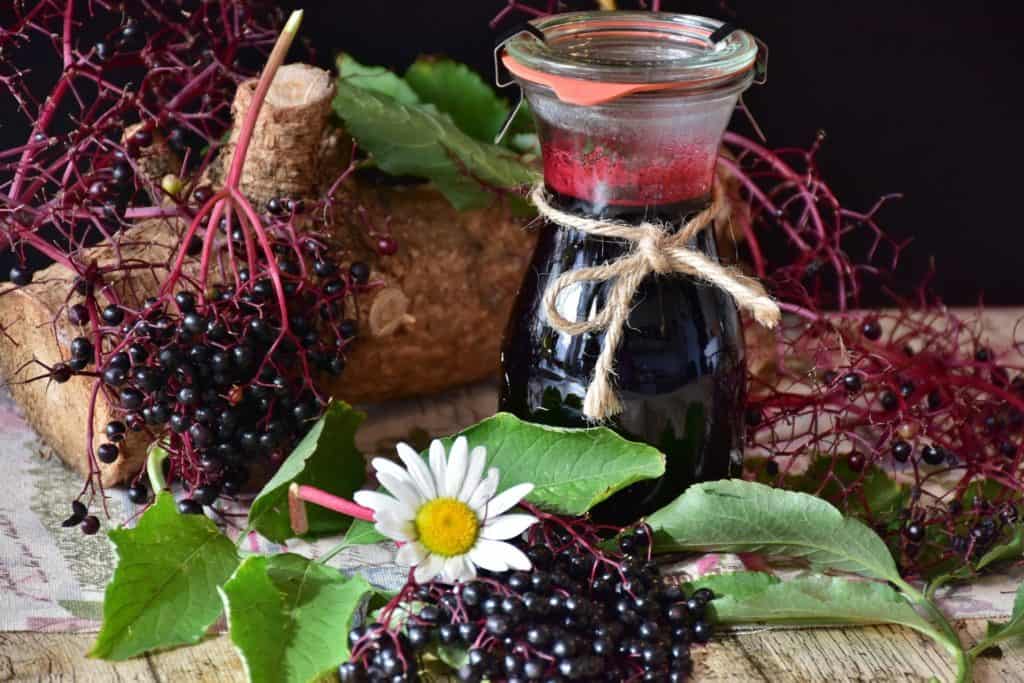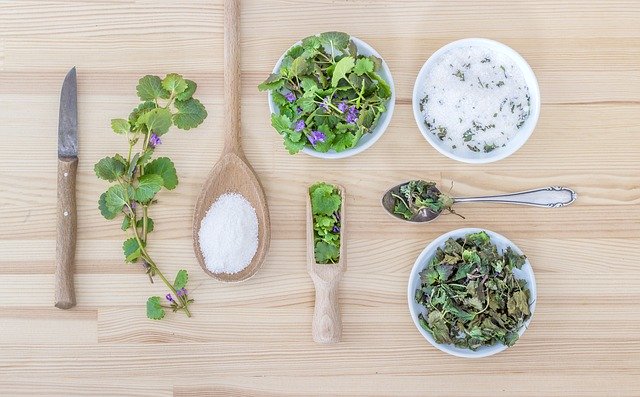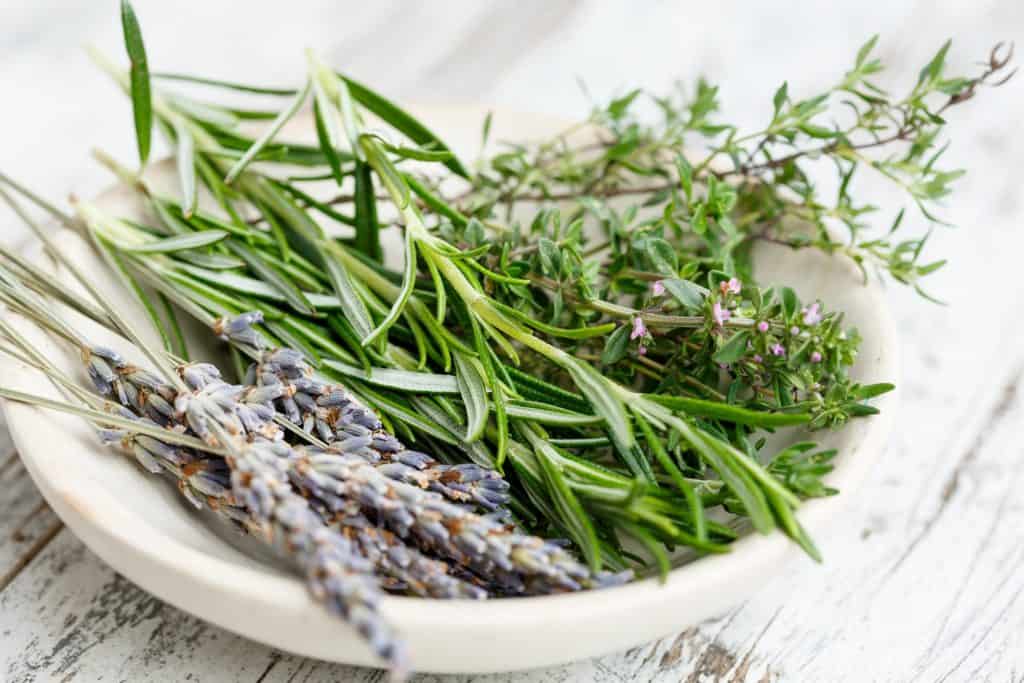Elderberries are one of those plants that are just must-haves I think.
Every aspiring home herbalist needs to grow their knowledge of common herbs right along with their herb gardens. Whether you want to grow herbs to use in a little kitchen witchery or you want to make up your own batches of tinctures, oxymels, or syrups, this series introduces you to 8 common plants you might want to grow for your home apothecary.
Of course, there’s much more to know about each plant, but hopefully this introduction will be enough to inspire your curiosity.
Elderberries for Immune Boosting
Elderberry is a type of bush. It has white flowers that bloom in the late spring. Berries come on in the summer. You’ll have to be quick when gathering them, since you’ll be competing with the birds, who also love to snatch them up as quickly as they become ripe.
If you gather your own, these can be dried using whatever method you like best. I have used a food dehydrator, a slow oven, and I’ve hung my herbs to dry. Each method has merit, and I’ve come to like certain options with certain plants. Experiment with what works for you. Once you’ve dried them, you can store them in a jar in a dark cabinet to keep them fresh. Dried berries have a long shelf life, but of course, you should always check your stock before using them.
Elderberries have antiviral and immunity boosting properties and are useful for when we feel like we’re getting a cold or a sore throat. Elderberry syrup can be kept in the fridge for just these times.
Here’s how to make a syrup:
Elderberry Syrup Recipe
It’s simple to make, stores right in the fridge, and is ready to go when cold and flu season arrives. Of course, you can make as many batches as you want throughout the season to be sure you don’t run out.
If you’d like to try a recipe that adds in other ingredients, here’s a recipe that uses ginger, cinnamon, cloves, and orange peel. I haven’t personally tried it, but it sounds delightful.
Growing Elderberries & More
Few things are more satisfying than cultivating your own vegetables, flowers, and herbs. For many of us, it’s possible to just add these plants to our existing landscape. Elderberry bushes are candidates for it, although you may need to protect them from deer. I found that out the hard way, after planting a slew of seedlings, only to have the deer chew them to pieces. Lesson learned. Even with a few “fails,” gardening is good for the soul.
My goal has been to make everything that grows around my home edible or useful in some way. I also always want my plantings to improve habitat for the pollinators—bees, butterflies, and birds.
Happy gardening!
Be sure to check out the other posts in the series that are listed for you below.
Blessed be.
Other Posts in this Series
What is Plant Medicine? The Basics.
Learning Plant Medicine for Beginners
Start your Own Home Apothecary: Tools & Methods
8 Plant Medicines Found in your Kitchen
Plant Medicine to make in the Fall
Disclaimer: I’m not a medical doctor or an herbalist. This article isn’t intended to be medical advice. Not all plants are safe to use. Some are toxic and can be deadly. Other herbs may cause an allergic reaction in some people. Always consult your doctor, healthcare provider or a qualified herbalist before using any type of plant medicine.



